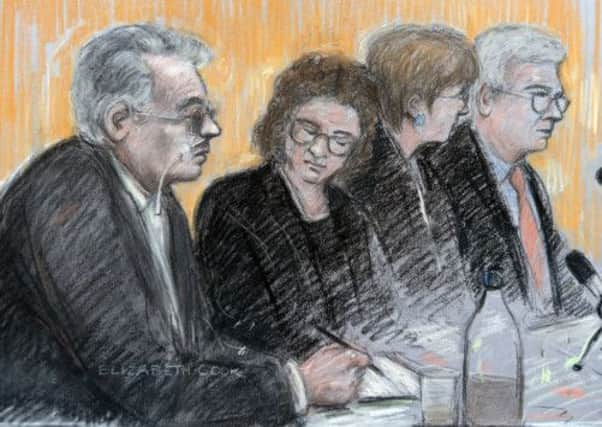Ian Brady tribunal: ‘Insane’ Brady loses appeal


• Ian Brady loses appeal to be moved to prison and will remain at Ashworth Hospital
• Brady deemed to be mentally insane as critics hit out against “circus” of tribunal
Advertisement
Hide AdAdvertisement
Hide AdThe Moors Murderer, who has been on hunger strike since 1999, had reportedly been hoping for a move to a Scottish jail where he would not be force-fed.
But a mental health tribunal ruled he was still mentally ill and required medical treatment at Ashworth Hospital in Merseyside, for the safety of himself and others.
The decision was welcomed by the brother of one of the five victims abducted, tortured and murdered by Brady and Myra Hindley, during their killing spree between 1962 and 1965.
Terry Kilbride, whose brother John was snatched in November 1963, aged 12, said Brady should remain in hospital.
“He should stay where he is, that’s my honest opinion on it,” he said. “I don’t believe he’s going to kill himself – that’s just a ploy, just another wind-up.”
He said he wanted Brady, 75, to be kept alive as long as possible so that he could say where he had buried Keith Bennett,
another of his victims, whose body has not been found.
Keith’s mother, Winnie Johnson, died last August, aged 78. She had made repeated pleas to Brady to reveal the location of his grave.
Her solicitor, John Ainley, said she would have been “stressed and angry” at Brady’s references during the eight-day hearing to his murders as “recreational” and an “existential experience”. But she would have been satisfied with the ruling, he said. “She always felt that Ian Brady did not give the children any choice and consequently he should not have the choice to leave the hospital environment,” he added.
Advertisement
Hide AdAdvertisement
Hide AdThe tribunal was the first time Brady has been seen in public since the 1980s, when he was taken back to Saddleworth Moor in the search for the bodies of two of his victims, and the first time he had spoken in public since being jailed for life in 1966.
The decision on his appeal was given by the three-person panel, headed by judge Robert Atherton, who heard evidence at Ashworth that was relayed to the public and press at Manchester Civil Justice Centre.
The judge said: “The tribunal has concluded that Mr Ian Stewart Brady continues to suffer from a mental disorder which is of a nature and degree which makes it appropriate for him to continue to receive medical treatment, and that it is necessary for his health and safety and for the protection of other persons that he should receive such treatment in hospital, and that appropriate medical treatment is available for him.”
The reasons for the decision will be given at a later date.
Dr David Fearnley, of Mersey Care NHS Trust, said: “Mr Brady suffers from a severe personality disorder and a mental illness which requires high-quality care. It is a testament to the staff of Ashworth that we have been able to stabilise his schizophrenia.However, his condition is chronic and will require this support for the foreseeable future.”
At the tribunal, Brady challenged the order made under the Mental Health Act when he was transferred from prison to Ashworth in 1985.
His legal team argued that, despite his severe personality disorder, he was not mentally ill and no longer fulfilled the legal criteria for detention in hospital.
Brady has suggested that, if he was allowed to go back to a prison, he would be “free to end his own life” by starving himself to death.
He has the right to challenge the decision and can apply for a fresh tribunal every year.
The estimated £250,000 cost of the tribunal – Brady received legal aid – has been criticised as a waste of taxpayers’ cash.
SEE ALSO